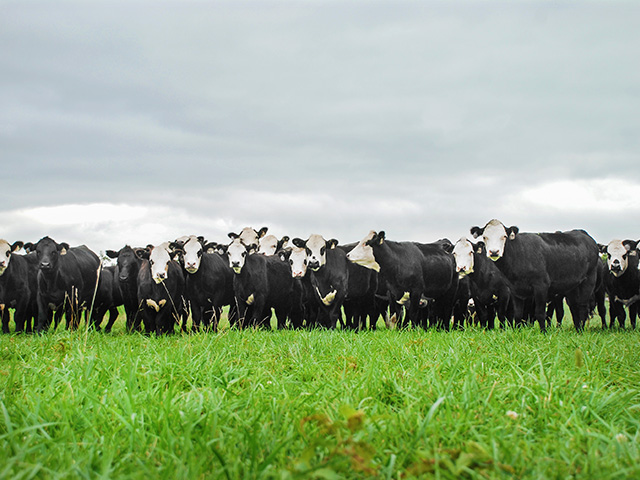Self-Assessments
Livestock Businesses Benefit From Feedback
Findings from a two-year study, supported by the U.S. Roundtable for Sustainable Beef (USRSB), show there is a measurable value in the sustainable approach to beef production, and in utilizing self-assessments throughout the process.
The Integrity Beef Sustainability Pilot Project tracked cattle from birth to beef patties, covering 36 ranches, 92,577 acres of land, and 3.5 million pounds of beef. All of it was raised, processed and served in the U.S. Working on the pilot were the Noble Research Institute, Integrity Beef Alliance, Beef Marketing Group, Tyson Foods, Golden State Foods and McDonald's Corporation.
P[L1] D[0x0] M[300x250] OOP[F] ADUNIT[] T[]
Wayne Morgan, corporate vice president of Golden State Foods and current chair of the USRSB, noted one of the takeaways from the pilot was, "Providing information up and down the supply chain is valuable when identifying opportunities to improve, and ultimately allows us to answer the questions our customers are asking."
The USRSB's high priority indicators for sustainable beef production, all assessed during the pilot, included: animal health and well-being, efficiency and yield, water resources, land resources, air and greenhouse gas emissions and employee safety and well-being.
The project ran from 2017 through 2019, and started at ranches in Oklahoma, Texas and Kansas with calves born in February and March. They were weaned at 6 to 8 months of age. Next stop was BMG feedyard in November and December. In May, June and July they were harvested at Tyson's plant in Holcomb, Kansas. From there hamburger was shipped within 3 to 5 days to Golden State Foods in Alabama, where it was ground and formed into patties. Those patties were distributed by McDonald's (2.2 million of them) across the Southeast in May, June and July.
One of the cattle producers taking part in the pilot, Meredith Ellis, said she and her father GC Ellis, raise Black Angus and Angus-Charolais cross feeders on 3,000 acres of grassland in Texas. She believed the pilot was an opportunity for their family operation, and said they have been part of the Integrity Beef Alliance since its inception. They have developed an advanced grazing plan, and have 92% of their ground covered in plant life year round.
"Getting data back on how our calves performed. . .that's something we've never had before," she added. "Just having this knowledge will help us tremendously going forward. We want to provide the healthiest beef on the healthiest land you can possibly have."
The program is voluntary, and producers can go online to learn more about sustainability self-assessments. Noble Research Institute, working with USRSB, developed the web-based tool that is tailored to each of the five beef production segments.
To try the self-assessment go to: https://nobleapps.noble.org/…
(c) Copyright 2020 DTN, LLC. All rights reserved.






